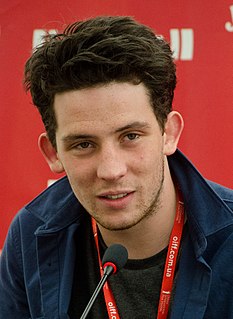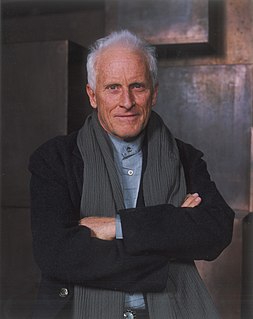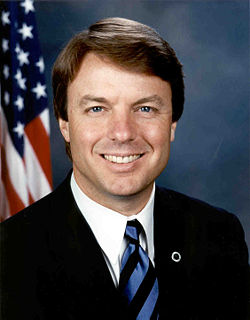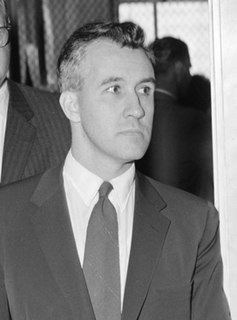A Quote by Josh O'Connor
All good art should be political, I think, and inevitably it all becomes political really, in one way or another.
Related Quotes
Now the good of political life is a great political good. It is not a secular good specified by a comprehensive doctrine like those of Kant or Mill. You could characterize this political good as the good of free and equal citizens recognizing the duty of civility to one another: the duty to give citizens public reasons for one's political actions.
Let me see: art and activism. I can always fall back on, "the question should be, what isn't political? Everything you do is political, even if it's abstract. You're making a political statement even if it's unwittingly." I think so much of art is unconscious anyway, the artist doesn't know the real reason they're doing it. They're just kind of going along with it intuitively.
Some people feel that it's controversial if I say that because my dad is known as a political artist. But I don't really believe that he was a political artist. I think some of his songs were political, and I think they were incredible because he was able to make art that was political and that wasn't pedantic. But I think he was unique in being able to do that.
I think when people try to use their art for political views, I think they're art becomes smaller, less interesting. And so for me, as an artist, I'm trying to speak about things in a universal way and not be pedantic or small-minded and try to convince other people of my political views. But having said that, every day I live in sort of complete terror because of what I read in the newspaper and what is going on in the world. I'm constantly, as I think many of us are, overwhelmed by the sort of, mass psychosis that's occurring.
I write some art criticism, and one thing that's clear to me is that politics is fashionable in the American art world in a way it maybe isn't in American fiction. Your work of art becomes fashionable the moment it has some kind of political commentary. I think this has its dangers - the equation between fashion, politics, and art is problematic for obvious reasons. Nonetheless, the notion of politics as being de rigueur in the world of fiction is almost unthinkable. In fiction in America at the moment, the escape into whimsy is far more prevalent than the political.
Using the word ‘political’ in the widest possible sense. Desire to push the world in a certain direction, to alter other peoples’ idea of the kind of society that they should strive after. Once again, no book is genuinely free from political bias. The opinion that art should have nothing to do with politics is itself a political attitude.
I don't really believe in political art. I feel in my heart the purpose of art transcends cultural and class and politics. I think something like the Sistine Chapel is something that goes beyond just being a Christian thing. It transcends its Christianity and becomes sort of a universal beauty. And I think that's true of music and art and literature.
My definition of art has always been the same. It is about freedom of expression, a new way of communication. It is never about exhibiting in museums or about hanging it on the wall. Art should live in the heart of the people. Ordinary people should have the same ability to understand art as anybody else. I don’t think art is elite or mysterious. I don’t think anybody can separate art from politics. The intention to separate art from politics is itself a very political intention.

































